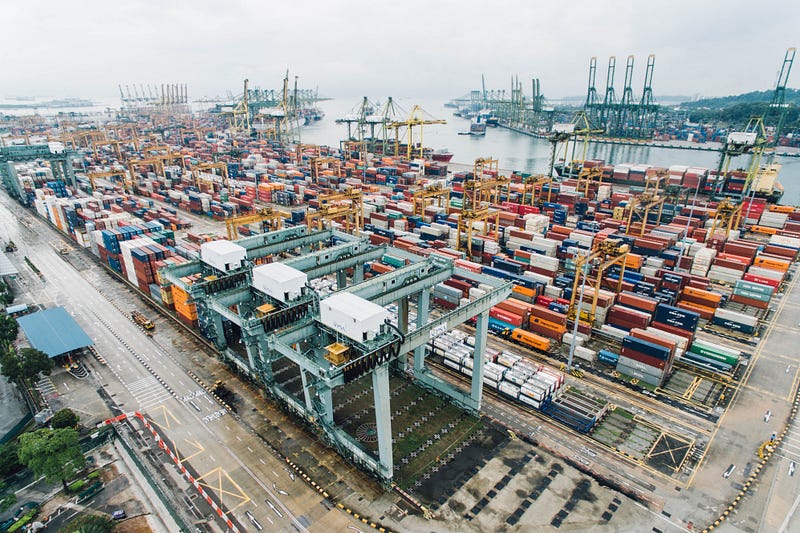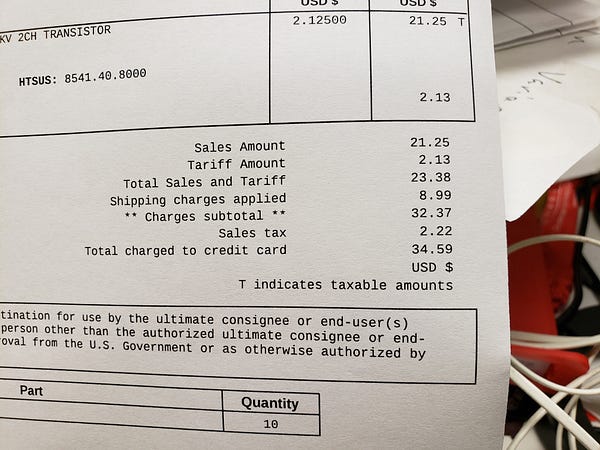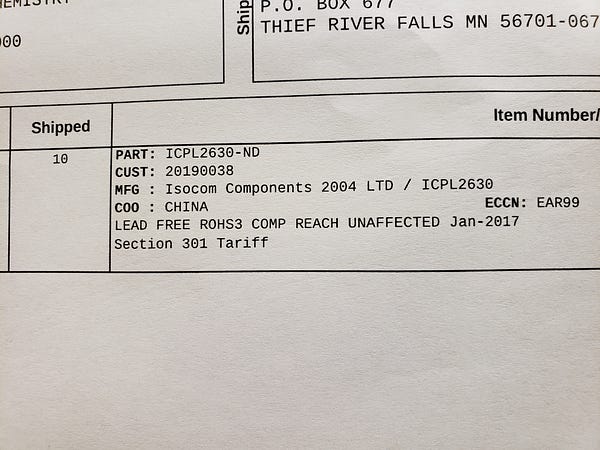President Trump says that China will pay for Tariffs along with his staff. The problem is that his logic does not line up with the outcome of a protracted Trade War with China.

In a perfect world, there would be no need for ‘Free Trade.’ Each country would pay its fair share on goods that are exported and imported into their respective country. That is the dimension in which President Trump’s current trade war with China and other countries are living in at present.
The problem is that the world (i.e., dimension) in which the rest of the United States citizens live within along with the rest of the world is quite different. And the aspect about which I speak in which we live in is not perfect. Although, for decades, the United States has benefited greatly from ‘free trade.’ Even members of the Republican party favor ‘free trade.’
Why then does President Trump not favor ‘free trade’?
Deficits Are Good?
According to our President, he feels like the United States is running a deficit due to the prolonged effects of ‘free trade’ over the decades, which is true. What is left out of the conversation is those deficits exist for a reason. Further, a country which is not running a debt is not better off than one which is. That fact was conveyed to me by a professor of Government Studies over 20 years ago. I will always remember that discussion. A deficit is healthy to a large extent. What?
In light of this fact, what does President Trump hope to get out of this trade war from China?
The answer has been an overwhelmingly — ‘win’ by our President. What does a ‘win’ mean? Hopefully, a win does not mean that the average American consumer pays more for their items received from imported goods. That appears to be the direction in which we are headed as a nation with the current Trade War.
Tariffs Are Here!
Amid the current disaster, the new plan which is being reported by various news agencies is that the Trump administration would like to hold off tariffs until after Christmas. That is nice of the President.
Reporting by the Washington Post has uncovered the truth of how tariffs negatively impact consumers:
The White House announced Tuesday that the president’s latest tariffs on China would be delayed on many popular items like cellphones, laptops and strollers. The 10 percent tax would not go into effect until Dec. 15, effectively ensuring retailers can import goods for the holidays before the tariffs take effect.
Trump himself told reporters the delay is to ensure consumers don’t face higher costs this Christmas. Here are his full remarks:
“We are doing this for the Christmas season, just in case some of the tariffs would have an impact on U.S. consumers. So far they’ve had virtually none. The only impact has been that we’ve collected almost $60 billion from China, compliments of China. But just in case they might have an impact on people, what we’ve done is we’ve delayed it so they won’t be relevant for the Christmas shopping season,” Trump told reporters before he flew to western Pennsylvania.
Not all consumers will get to wait until after the Christmas season to avoid paying the extra taxes for imported goods. I saw a recent example at the university in our purchasing department. Our purchaser ordered a digital part from a U.S. based company. I was surprised to see the following tariff applied to the piece from China — given the promises made by our President over the last year.
Below are two images of a receipt of a recent purchase from a U.S. corporation who outsources their parts from China:


In the image on the left, the breakdown of costs lists the ‘Tariff Amount’ of $2.13 on a charge of $21.25 — bill. Whereas in the description of the part ordered, the ‘COO’ — Country of Origin has China listed. The last line on the breakdown of parts states, “Section 301 Tariff.” That is direct evidence of a tariff passed onto consumers from China.
Tariff Talk?
Over the last year, discussions have been brewing among economists and business executives about the growing concern of the cost of tariffs being passed onto consumers. In closing the overt debate, I thought that providing three short videos below would be welcomed. Especially, given where we have come as a nation throughout the emerging Trade War.
The first video is an interview from April of 2018 on MSNBC’s Morning Joe with guests on the announcement of 25% on tariffs. To which China retaliated overnight with a list of tariffs on goods coming to America:
In the discussion above, the point to note that the announcement did not mean that taxes would be a reality. The above commentary was speculation of the impact on Americans with proposed tariffs.
What was mindboggling was the range of American goods which would be negatively impacted by tariffs (in either direction), which include Aircraft parts (Boeing), Soybeans, farming (non-citrus, nuts, hog, pig, etc.), manufacturing(dry food, ethyl alcohol, iron, steel pipe, aluminum, etc.). That list alone would be damaging to American businesses.
Move forward a year, and the next interview is with CNN’s Brooke Baldwin and President and CEO of the American Apparel & Footwear Association Rick Helfenbein:
Rick Helfenbein is ‘freaked out’ over the potential threat of tariffs with China. He likened the risk to the second sailing of the Titanic ship — except that, in the current case, the icebergs (threats) are known. And can be avoided in the case of the ongoing trade war. The apparel business lookout is months in advance — with purchases occurring way in advance.
Additionally, CEO Rick Helfenbein points out that when apparel manufacturers move out of a given region, the ability to have them reverse course is practically impossible.
The last video is with CEO Steve Madden of Steve Madden apparel. He was interviewed by MSNBC’s Ari Melber as shown below:
Steve Madden clearly states that American consumers are feeling increasing prices due to the trade war. He says that cheap manufacturing will not return to the United States. Even if the trade war is ‘won’ by the Trump administration. The truth is that goods which are coming to the United States would switch to other countries (i.e., Mexico, India, etc.) rather than China.
Bring Jobs Back To America
The notion of bringing jobs back to America is a falsehood. Unemployed workers from manufacturing jobs lost overseas should be performing a higher-skilled job here in America. Instead of wanting to perform an old job, get trained to perform a higher-skilled (i.e., higher demand) position.
President Trump should let go of the idea of ‘winning’ trade war with China. The longer he holds onto the plan; the more America will lose in the process. Don’t take that idea from me; read all about it all over the news.
Related Blog Posts:
Soybean Farmers Are Storing Too Much Soybean, Although Chemical Industry Is Greenlighting Trade Deals?
How many cows are needed to generate 50,000 tons of beef exports?
Trade War Hurts Farmers -- From The Farmer's Mouth Directly
"Trade Not Aid" -- The Answer For Trade War!
Parameters: Tariffs Affect Trade In Both Directions -- In And Out Of The USA
Parameters: Steel And Aluminum Tariffs Are Not Isolated - They Are Tied To Trading Of Other Vital Goods
1) Dimensional Analysis Of Statistics And Large Numbers - Index Of Blog Posts
2) Science Topics, Thoughts, and Parameters Regarding Science, Politics, And The Environment!
No comments:
Post a Comment